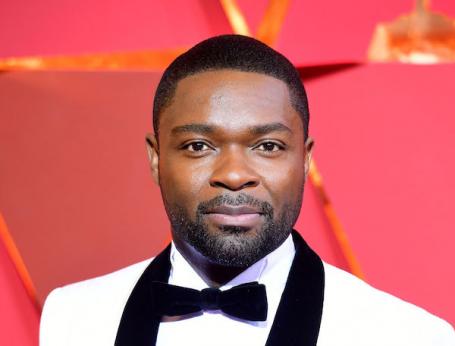DAVID OYELOWO is taking on the world of comedy in his latest flick ‘Gringo’. The dark comedy sees Oyelowo play Harold – a mild-mannered accountant who gets caught up in a world involving drug dealers, dodgy entrepreneurs and a kidnapping gone wrong.
The action comedy blends its laugh out loud moments with series political undertones, complete with an all star cast with Oyelowo shining amidst it all.
Following its release, we spoke to the acclaimed actor about his first comedic outing, Black Panther’s impact, and why it pays to be good.
Q: What drew you to star in ‘Gringo’ and the role of Harold?
David Oyelowo: I was looking for something lighter – something more comedic. I’ve played a lot of dramatic roles as of late and as much as I loved doing that, I wanted to show a different side of myself. When I read the script for ‘Gringo’, I laughed out loud reading it but it wasn’t written for someone like me. So I thought “mmm okay maybe I can go and persuade the director. They never envisioned this character as black – which is ironic considering my character, Harold, lives in Chicago and that’s a place with a very large black population.
Q: When you find a character you like that isn’t initially a ‘black’ character, how do you approach that and convince the director that you are right for the role?
DO: It doesn’t always work but I think it’s changing. Until recently, characters that are race specific are either historically about black struggle, so it’s refreshing to play a character which wasn’t race specific character. For Gringo, it was one of those lucky instances where I had a director who was brave enough, collaborative enough and forward thinking enough to envisage me in that role regardless of race.
Q: In the film, there’s a consistent theme of immigration, the idea of the American dream, as well as the concept of starting over. Who or what inspired you to channel those themes as well as you did?
DO: Well, I’m the son of Nigerian immigrants but I also emigrated to the States 11 years ago. I know this experience, I know what it’s like to go to America, full of hopes and dreams, and then be faced with the reality that those streets are simply not paved with gold. There is opportunity there but you’ve got to be savvy, wise and have your eyes opened to the actual circumstances you are in. And that is something that we see Harold trying to navigate. So I definitely relate experientially to some of what he’s going through.

STAR: Gringo
Q: The film was largely set in Mexico – how did filming in that location differ from all your previous work?
DO: It was fun to do the action, the comedy and Mexico is an extraordinary country. It was just nice to go to work and have fun and like I said I love playing dramatic roles, but this posed a different challenge in a sense.
Q: There are so many different aspects to the film, but if there was one key thing the viewers could take away from it, what would it be?
DO: I would say that I’d like viewers to realise that it does pay to be good in the long run
Q: Discussions around diversity has been prominent, especially following the success of Black Panther. Do you see a promising future for diversity in film?
DO: I do, I feel like we’ve hit a tipping point. Black Panther illustrates what we have known to be true for a long time, that audiences are ready to embrace images and characters and settings that they haven’t seen before. Black Panther illustrates actually how Africans view themselves; royal, regal, self-possessed, smart, sexy and savvy. This is how we walk through the world but you would know it. To look at movies and see that is amazing to see.
So that you know films like that and then of course Get Out as well, which is done incredibly um expansive business, which it doesn’t deny its blackness if you like you know the circumstances within Get Out are very specific, the circumstances within Black Panther are very specific in terms of the black experience but it doesn’t mean that that cannot go far and wide for a general audience.


Comments Form